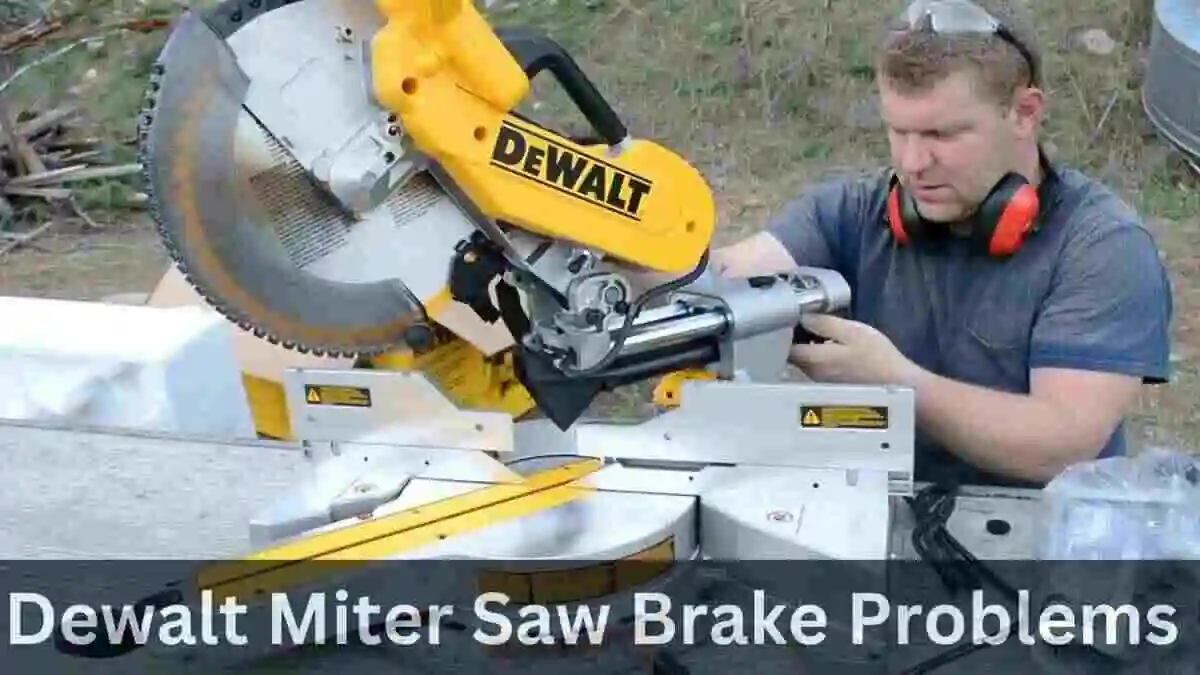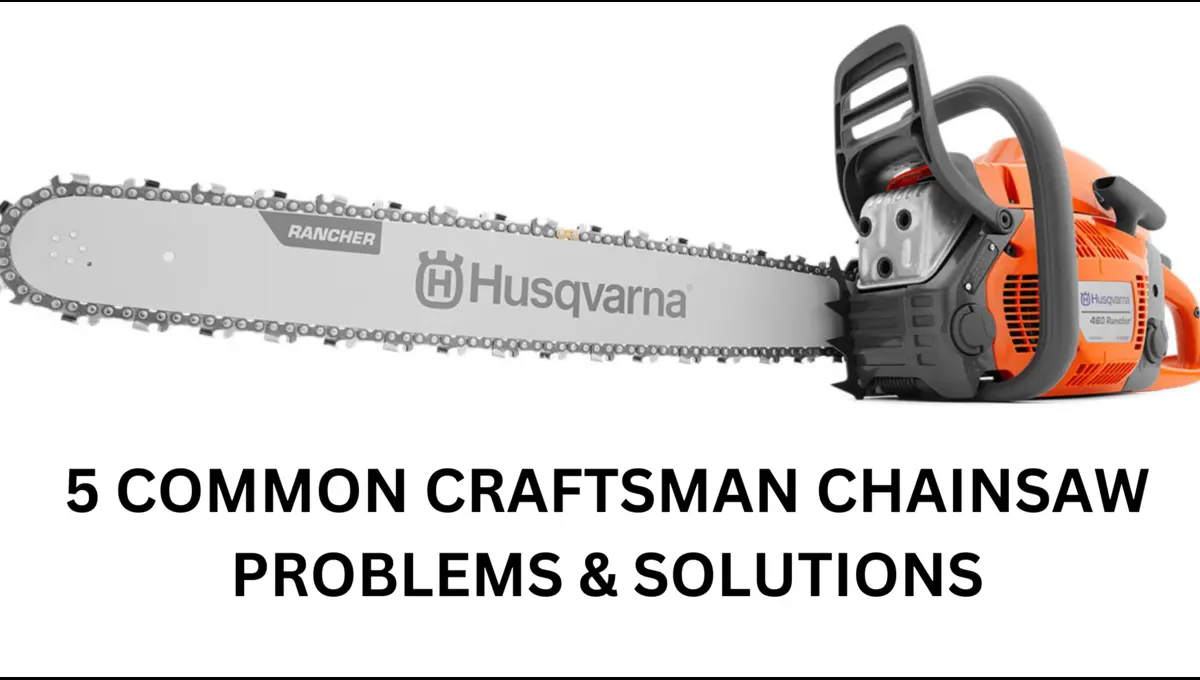You might be thinking to clean up after a storm or prepare wood for a bonfire. when you start your Stihl chainsaw it refuses to start it can be frustrating. While Stihl chainsaws are known for their durability, even the most reliable tools can encounter problems.
Such as bad spark plug or improper techniques and many more. In this comprehensive guide, we’ll delve into stihl chainsaw problems faced by owners.
First Things First:
First Thing First: If you have just bought your stihl chainsaw and it was working fine for few hours and later on started to cause problems then their is a possibility of manufacture defect in the chainsaw in this case if you have time you should immediately return the chainsaw, otherwise if you are facing problems after the return date has ended then go for claiming warranty.
The Lifespan: According to tests carried on stihl chainsaw it is studied that it has average lifespan of 16 months and in many other cases only 12 months. In this case go for buying new chainsaw as the problems after this age are impossible to fix don’t waste your time. You can buy new chainsaw. Following chainsaw are best to buy.
- BLACK+DECKER Electric Chainsaw
- SKIL PWR CORE 20 Brushless
- CRAFTSMAN Electric Chainsaw, 16-Inch, 12-Amp
Initial Problems: (Fixed)
Stihl chainsaws occasionally face starting challenges, it makes difficult to get going in you daily life work.
-
Improper starting techniques: Correct start of chainsaw is crucial for safety and efficiency. Unfortunately, improper starting techniques can lead to frustration, wasted time, and potential damage. To effecient start, Avoid over-priming (usually 2-3 pumps).Use the choke for cold starts, disengage it as it warms up. Purge air from the fuel line to prevent blockage, ensuring proper priming, and pull the starter cord smoothly and consistently for optimal engagement.
-
Faulty spark plugs: Spark plugs are essential for ignition, producing a spark when you rev your chainsaw. While annual replacement suffices for occasional use, regular use may necessitate more frequent changes. Compare the old spark plugs to new ones to identify excessive wear on the tip and electrode, indicating the need for replacement. Additionally, check for signs of fuel and oil contamination on the spark plug.
-
Faulty ignition coils: The chainsaw ignition coil sends voltage to the spark plug, crucial for starting. If the spark plug is fine but the chainsaw won’t start, check the ignition coil with an ohm meter for circuit breaks. Replace the faulty ignition coil for efficient chainsaw operation.
-
Dirty air filters: Chainsaws work like car engines, using an air filter to keep dirt out. If the filter gets too dirty, it won’t stop dust, which can harm the chainsaw. Clean or change the filter regularly to keep the chainsaw running well. Replace the filter yearly to prevent overheating, and never use the chainsaw without a filter. Check the manual for help.
-
Bad Fuel Mixtures: Homeowners often leave their chainsaws unused for weeks. It causes fuel issues like stalling. Stale gas, sitting for over 30 days, turns sticky and clogs the chainsaw’s fuel system. To fix, clean fuel lines with carburetor cleaner and avoid leaving gas in the tank for too long.
Use the right fuel and add stabilizer if storing the chainsaw for an extended period. If hard starting occurs, replace old gas with fresh fuel to resolve the problem quickly.
Stihl Chainsaw Problems (Fixed)
1. Loss of Power:
If you notice a decline in power from your Stihl chainsaw, examine potential issues. Such as a clogged air filter, dirty carburetor, dull chain, fuel system problems, or worn-out engine components.
To restore power, take the following steps: Clean the air filter regularly to ensure proper airflow. Address carburetor issues by cleaning or rebuilding it. Sharpen the chain for efficient cutting. Consult a professional for a thorough fuel system diagnosis.
Don’t forget to replace any worn-out engine components promptly to ensure your chainsaw operates at its full potential.
2. Overheating:
Maintaining an optimal operating temperature is crucial for the performance and longevity of a Stihl chainsaw. Overheating can result from factors such as inadequate lubrication, a clogged air filter, dirty cooling fins, excessive use, or incorrect fuel mixtures.
To prevent overheating, prioritize proper lubrication, ensuring the chainsaw’s vital components are well-oiled. Regularly clean air filters and fins to facilitate efficient cooling, avoiding potential blockages. Additionally, practice moderation in usage to prevent the chainsaw from becoming excessively hot during prolonged operation.
Adhering to the correct fuel mixture guidelines further contributes to a cooler and more efficient chainsaw operation, safeguarding its longevity and cutting effectiveness.
3. Oil Leakage:
Oil leaking is a common problem for people who use Stihl chainsaws or any other saw. It can cause issues like less oil for lubrication, harm to environment, and faster wearing out of important parts. It is important to identify the source of the leak and to resolve this issue.
A damaged oil tank is a frequent culprit behind oil leakage. Any crack or breach in the tank allows oil to seep out, disrupting proper oil containment. If there’s sign of a damaged tank, it’s important to replace it immediately with a new one to avoid oil leakage.
Another common cause of oil leakage is a loose oil cap. Any loose cap can create an opening for oil to escape during chainsaw operation. To prevent leaks, it’s essential to always ensure the oil cap is firm and secured before and during use. Regular check and tightening the cap can help mitigate the risk of leaks.
Lastly, overfilling the oil tank can also lead to leakage issues. Exceeding the recommended oil quantity causes excess oil to overflow, resulting in leaks.
4. Unusual Noises or Vibrations:
If your Stihl chainsaw is producing unusual noises or vibrations, it could be due to various factors. Worn-out bearings are a common culprit; resolve this issue by promptly replacing them to eliminate the unwanted sounds and vibrations.
Additionally, check for any loose components and tighten them securely to ensure all parts are in place. If the chainsaw has a damaged clutch, seek professional assistance for a thorough inspection and replacement if necessary.
In cases of internal engine issues contributing to abnormal sounds or vibrations, it’s advisable to consult a professional for a comprehensive inspection and any required repairs.
Addressing these concerns proactively will contribute to a quieter and smoother operation of your Stihl chainsaw.
General Tips:
Sustaining optimal performance for a Stihl chainsaw involves adhering to essential guidelines. Users should meticulously read and follow the owner’s manual, ensuring a comprehensive understanding of proper usage and maintenance.
Employing high-quality Stihl fuel and oil is paramount, providing the necessary lubrication and fuel efficiency. Regularly cleaning the chainsaw and keeping it free from debris safeguards against potential malfunctions.
Equally crucial is scheduling periodic professional servicing by a qualified technician, addressing any underlying issues and contributing to the chainsaw’s longevity and consistent functionality.
These proactive measures collectively ensure that your Stihl chainsaw remains a reliable and durable tool for various cutting applications.
Conclusion:
Owning a Stihl chainsaw comes with the responsibility of regular maintenance and timely troubleshooting. By addressing common issues such as starting problems, chain malfunctions, power loss, overheating, oil leakage, and unusual noises or vibrations, users can ensure their chainsaws perform at their best.
Following general tips and guidelines, along with professional servicing, guarantees a prolonged and efficient service life for these robust tools. With the right care and attention, Stihl chainsaws will continue to be indispensable assets for users in various cutting applications.






